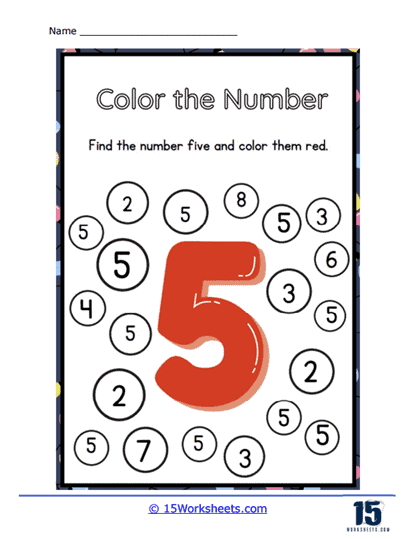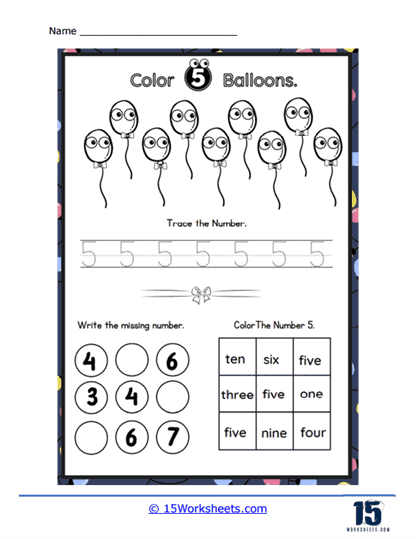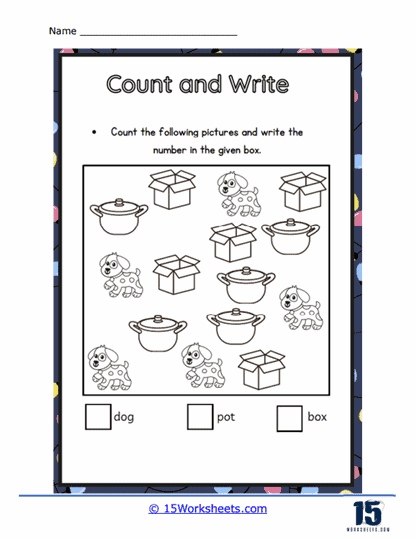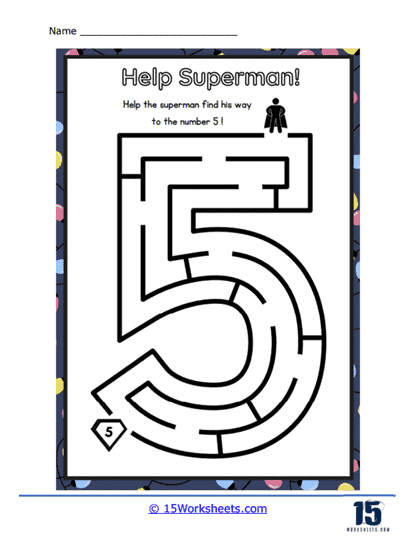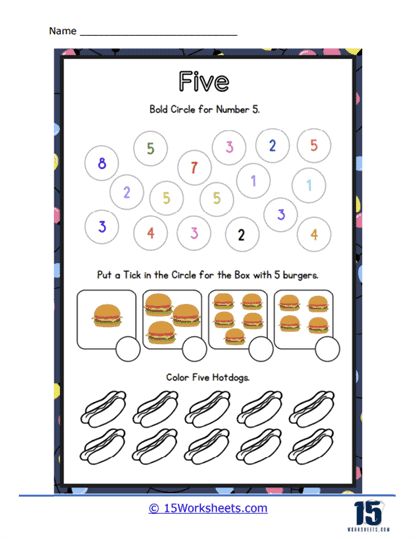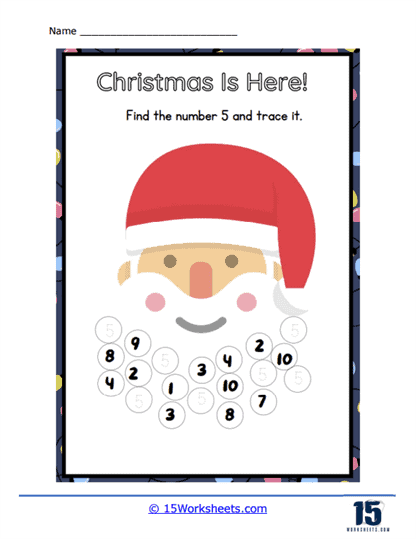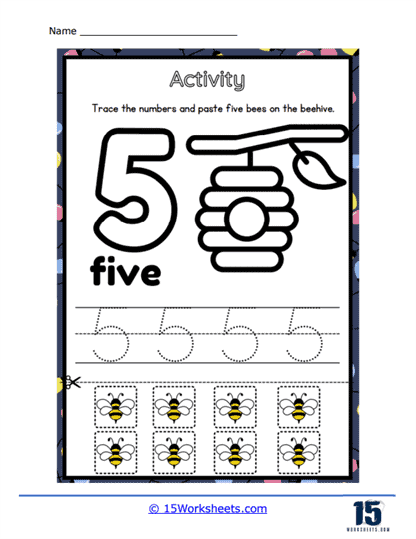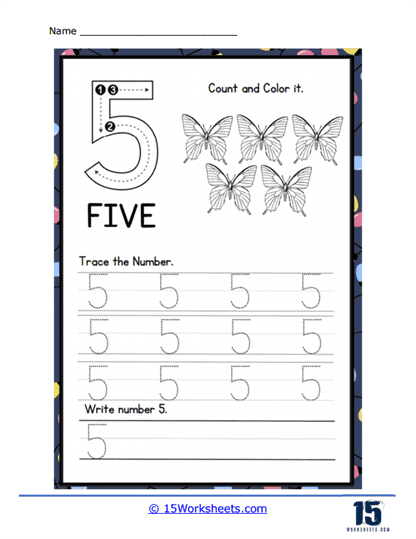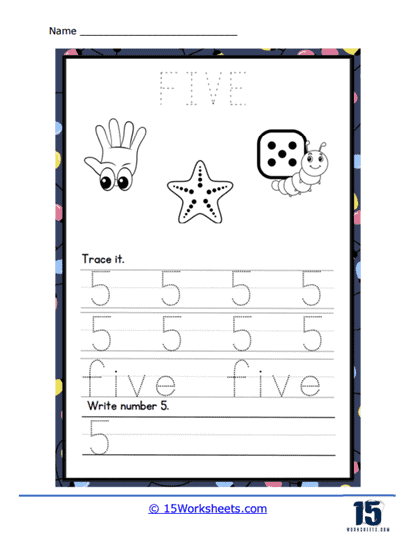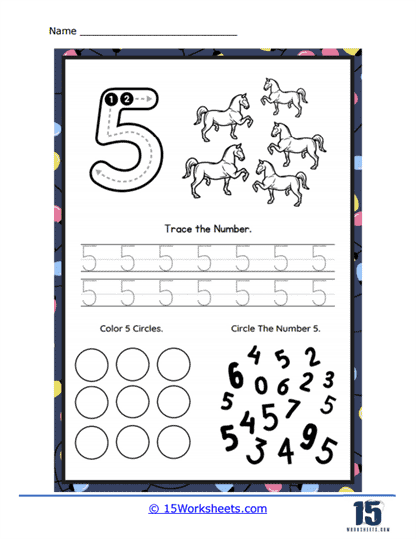Number 5 Worksheets
About These 15 Worksheets
These number 5 worksheets can help you get better at writing the number 5. This might seem simple, but just like learning to write letters neatly, it’s important to learn how to write numbers clearly too. Some of these worksheets will have dotted lines in the shape of a 5 that you can trace over, while others might give you blank spaces to practice writing 5 on your own. They also include counting exercises. For instance, you might have a sheet full of groups of objects, like apples, cars, or stars. Some groups have 5 items, some have more, some have less. Your task would be to identify and circle the groups that have 5 items.
These worksheets introduce you to basic math operations, like addition and subtraction, using the number 5. You might find exercises like 5 + __ = 10, where you have to figure out what number fills the blank. Or you might see 5 – __ = 3, and again, you’ll have to figure out the missing number. These exercises are super helpful because they get you comfortable with math, almost like you’re solving puzzles!
Number 5 Worksheets also teach you to recognize ‘5’ in different forms. For instance, you could have a worksheet that has a mix of numbers, and you have to pick out the 5s. This helps you get really familiar with how the number 5 looks, even in a sea of other numbers.
Number 5 Trivia Facts
- The number 5 is the only prime number that ends in 5 or 0.
- In Roman numerals, the number 5 is represented by the letter “V.”
- A regular pentagon has five sides and five angles.
- In traditional Western music, there are five lines and four spaces in a staff, which is used to write musical notes.
- The five Olympic rings represent the five continents of the world: Africa, the Americas, Asia, Europe, and Oceania.
- In Tarot card decks, the number 5 is associated with the Hierophant card, representing tradition, conformity, and spiritual guidance.
- The pentatonic scale, a musical scale consisting of five notes per octave, is widely used in various cultures and musical genres.
- In the Fibonacci sequence, each number is the sum of the previous two numbers. The sequence begins with 0 and 1, so the fifth Fibonacci number is 3.
- The human hand has five fingers, including the thumb, which sets humans apart from many other animals.
- The Five Pillars of Islam are the fundamental religious obligations that Muslims are expected to fulfill: Shahada (faith), Salat (prayer), Zakat (charity), Sawm (fasting), and Hajj (pilgrimage).

